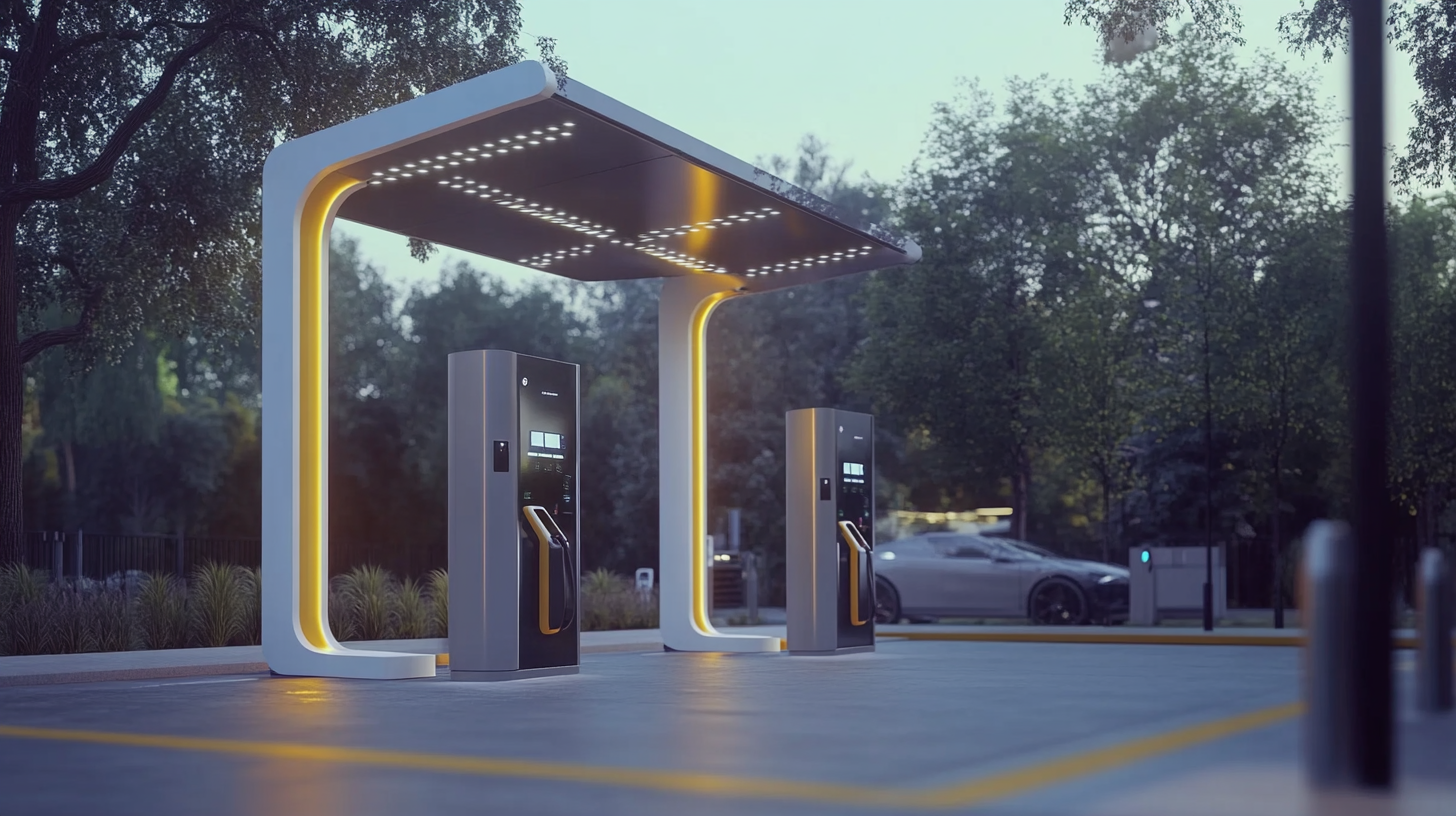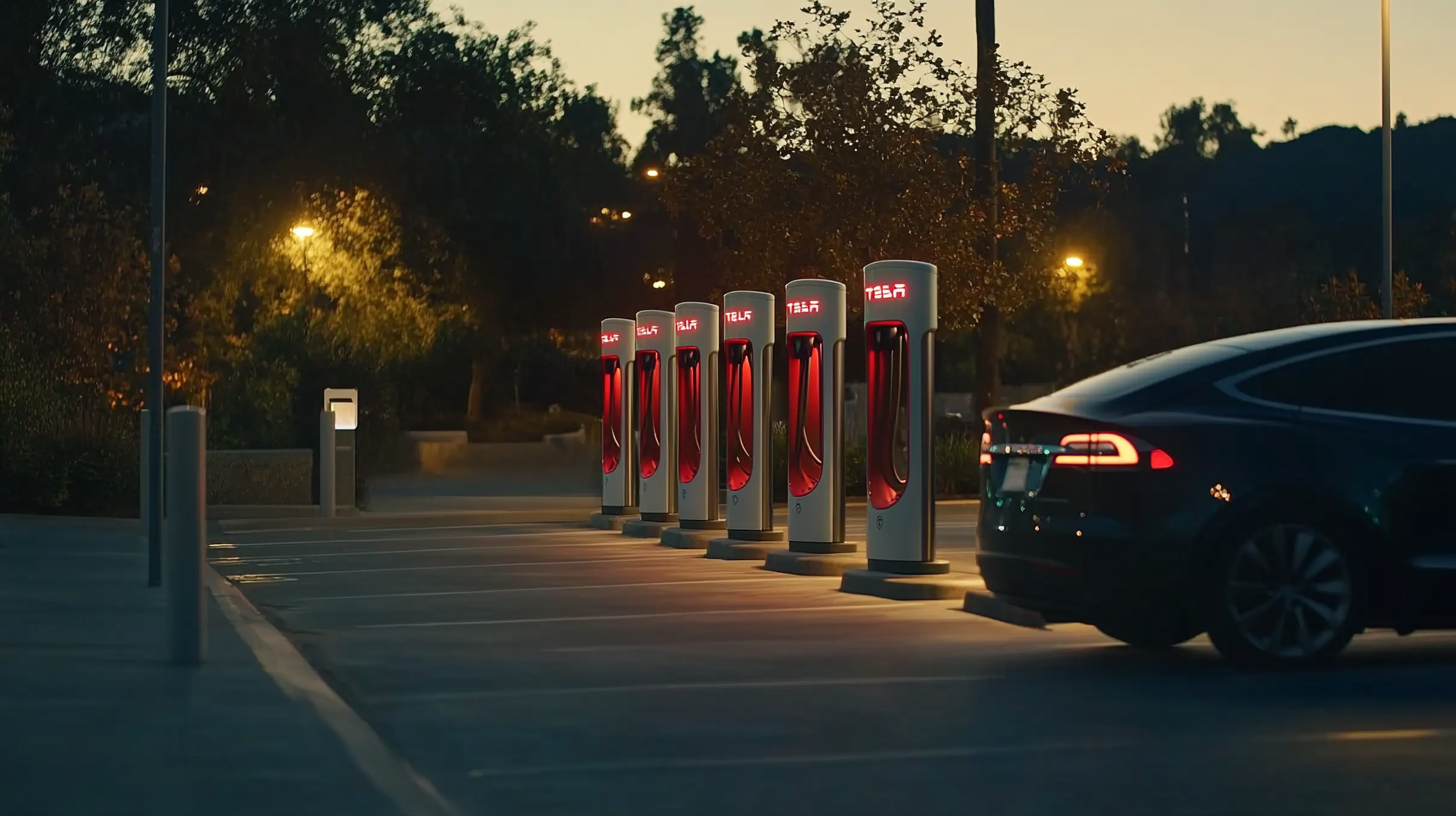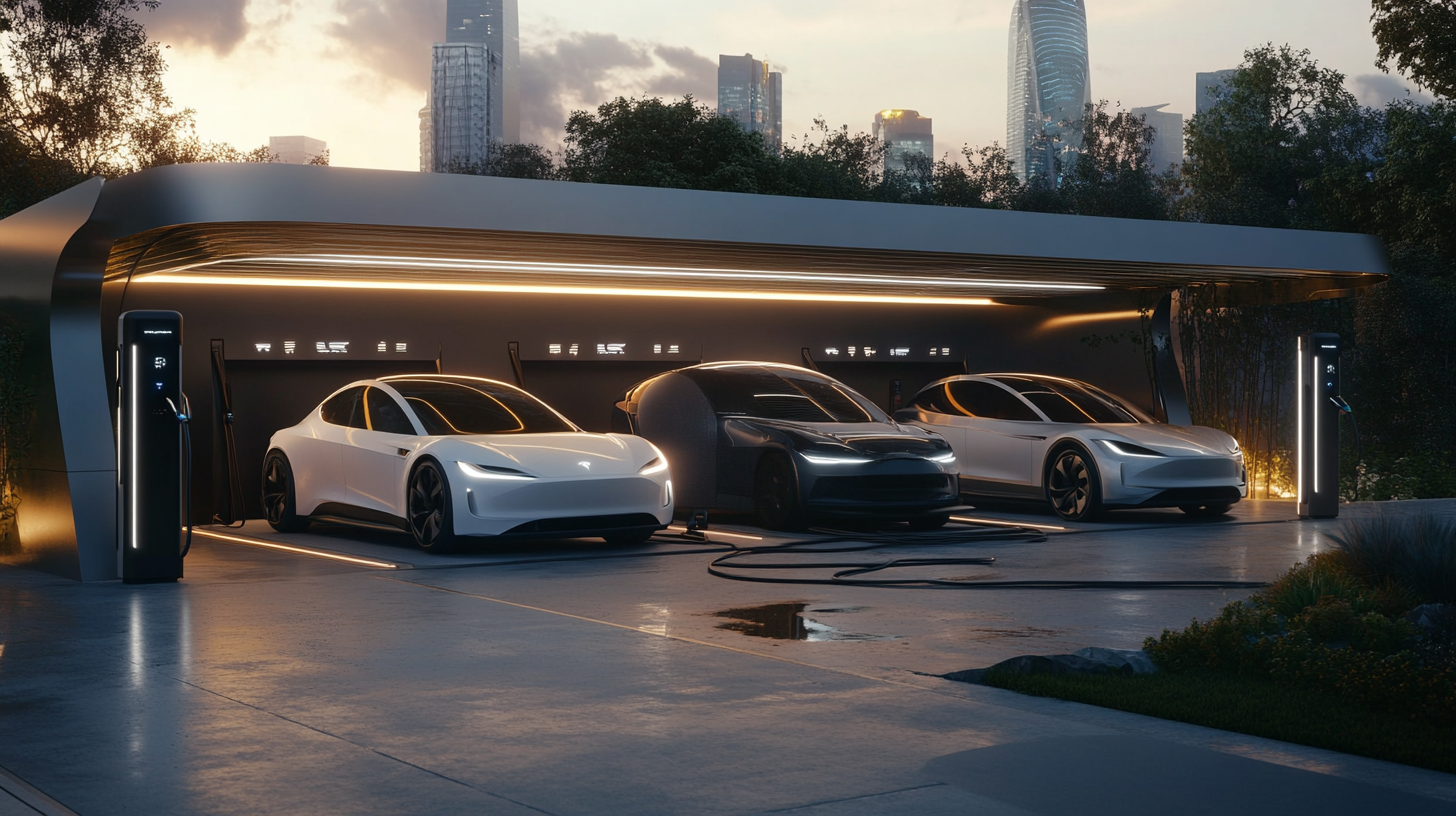The rapid evolution of the electric vehicle (EV) market has been a game-changer for Charging Station Suppliers, presenting both opportunities and challenges. According to the International Energy Agency (IEA), global EV sales reached a record 6.6 million units in 2021, a statistic that signifies a significant shift towards sustainable transportation. As the demand for EVs surges, the need for accessible and efficient charging infrastructure becomes paramount. A report by Research and Markets projects that the global EV charging station market is set to grow from $3.4 billion in 2022 to over $30 billion by 2030, reflecting a compound annual growth rate (CAGR) of 29.3%. In this context, understanding the dynamics and strategies of leading Charging Station Suppliers is crucial for stakeholders aiming to navigate this burgeoning market effectively. This blog will delve into seven essential insights that illuminate the key trends, challenges, and innovations shaping the landscape of EV charging solutions.

The shifting landscape of charging station suppliers is indicative of the broader evolution within the electric vehicle (EV) market. As the demand for electric vehicles accelerates, suppliers must adapt to new challenges and opportunities. For instance, according to recent industry analyses, the global electric vehicle market is expected to grow at a compound annual growth rate (CAGR) of over 20% through 2030. This growth underscores the urgent need for innovative charging solutions, particularly in regions where the technology is still emerging.
In Australia, the public fast EV charging network is undergoing significant changes; notable players are reevaluating their business models to meet evolving customer preferences. The NRMA's decision to end free charging is a pivotal moment that reflects the industry's need to balance cost recovery with consumer accessibility. Concurrently, new trials for advanced, queue-busting chargers are being introduced, suggesting that suppliers are actively seeking to enhance user experience and operational efficiency. This agility in product development and distribution models is essential as the landscape continues to evolve in response to rising operational costs and a competitive market environment.
Furthermore, the challenges surrounding electricity production costs emphasize the necessity for strategic partnerships and adaptive strategies among charging station suppliers. With electric companies facing increasing financial pressures, innovative solutions that optimize resource allocation and enhance service delivery become vital. As these dynamics unfold, it's clear that understanding the ongoing shifts within this sector will be crucial for suppliers aiming to thrive in the competitive landscape of electric mobility.
The rapid evolution of electric vehicle (EV) charging station technology is driven by several key factors that are redefining the landscape of this burgeoning market. One of the primary catalysts for innovation is the increasing demand for faster and more efficient charging solutions. As the number of EVs on the road continues to rise, suppliers are under pressure to develop advanced charging systems that reduce wait time for consumers. The introduction of ultra-fast charging stations, capable of delivering significant charge levels within minutes, is a direct response to this demand, making electric cars more appealing to potential buyers.
Another significant factor propelling innovation is the integration of smart technology. The shift towards smart grids and connected infrastructure is allowing charging station suppliers to incorporate features such as real-time data analytics and remote monitoring. These capabilities not only enhance the user experience by providing information on station availability and charging status but also help in optimizing energy consumption and contributing to grid stability. Moreover, the focus on sustainability and eco-friendliness is influencing suppliers to invest in renewable energy sources, paving the way for a more sustainable future in EV charging solutions. As the market evolves, these drivers will continue to shape the advancements in charging station technology, ensuring a robust and accessible infrastructure for electric vehicles.
In the rapidly evolving market of electric vehicle (EV) charging stations, identifying key players who set the industry's standards is crucial for understanding future trends. Market leaders are not just defined by their size but also by their innovative approaches to technology, customer service, and sustainability. Companies such as Tesla, ChargePoint, and Electrify America have distinguished themselves through their commitment to developing robust infrastructures that cater to the growing demand for EV charging solutions.
Moreover, leading companies invest significantly in research and development to stay ahead of emerging technologies, such as ultra-fast charging and wireless charging systems. They also engage in strategic partnerships with automotive manufacturers and energy providers, ensuring that their networks are accessible and efficient. By analyzing these market leaders, we can glean insights into their operational strategies and the standards they cultivate, which are essential for fostering customer trust and promoting widespread adoption of electric vehicles. Their impact not only shapes consumer experiences but also drives regulatory and market changes, influencing how the industry will evolve in the coming years.

As the electric vehicle (EV) market continues to grow, the significance of sustainability in the development of charging stations cannot be overstated. According to a report by the International Energy Agency (IEA), global EV sales surged to over 6.6 million units in 2021, representing a dramatic increase of 108% compared to the previous year. This unprecedented growth is driving the demand for charging infrastructure, prompting suppliers to prioritize sustainable practices.
Sustainability in charging station development involves not only the use of renewable energy sources but also the consideration of materials and lifecycle impacts. A study from the World Economic Forum indicates that integrating solar panels with charging stations can reduce carbon emissions by up to 80%. Additionally, many suppliers are adopting circular economy principles, ensuring that materials used in station construction and operation can be reused or recycled at the end of their life cycle. This approach not only mitigates environmental impact but also aligns with the increasing consumer preference for eco-friendly solutions, as highlighted in a 2022 survey by Deloitte, which found that 71% of consumers are willing to pay more for sustainable products.
Moreover, the trend towards decentralized energy solutions, such as community-based charging stations powered by local renewable sources, further exemplifies the commitment to sustainability. As reported by Bloomberg New Energy Finance, investments in these renewable charging infrastructures are expected to reach $20 billion by 2025, underlining a pivotal shift towards greener energy practices. By focusing on sustainability, charging station suppliers are not only enhancing their market competitiveness but also playing a crucial role in the broader transition to a low-carbon economy.

As electric vehicle (EV) adoption surges, understanding consumer preferences for charging infrastructure becomes increasingly critical. A recent study on battery electric vehicle (BEV) users in Germany highlights a strong inclination towards financial benefits when it comes to smart and bidirectional charging options. Users are looking for solutions that not only enhance convenience but also deliver tangible cost savings. This trend underscores the necessity for charging station suppliers to develop strategies that prioritize economic incentives to attract and retain users in a competitive market.
Moreover, the evolving landscape of EV charging infrastructure indicates that consumers expect more than just basic charging services. With the global EV charging infrastructure market projected to skyrocket from $65.3 billion in 2023 to a staggering $452.2 billion by 2030, flexibility and innovation are paramount. Consumers desire charging networks that are not only reliable and accessible but also integrated with smart technologies that facilitate a seamless charging experience. This alignment of user expectations with infrastructural advancements signals a pivotal moment for suppliers to innovate and cater to the diverse needs of the modern EV driver.
